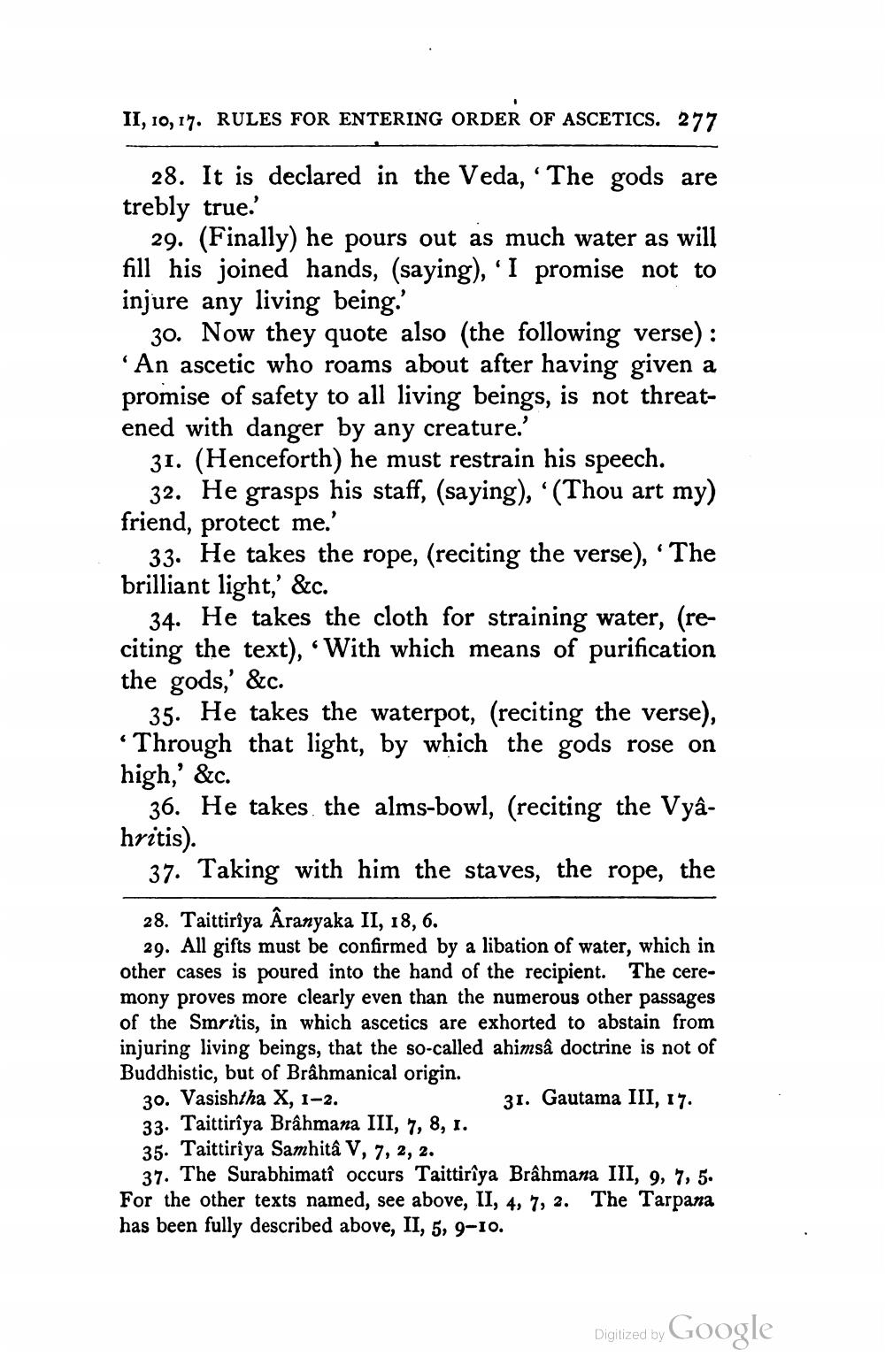________________
II, 10, 17. RULES FOR ENTERING ORDER OF ASCETICS. 277
28. It is declared in the Veda, 'The gods are trebly true.
29. (Finally) he pours out as much water as will fill his joined hands, (saying), 'I promise not to injure any living being.'
30. Now they quote also the following verse): 'An ascetic who roams about after having given a promise of safety to all living beings, is not threatened with danger by any creature.'
31. (Henceforth) he must restrain his speech.
32. He grasps his staff, (saying), ‘(Thou art my) friend, protect me.
33. He takes the rope, (reciting the verse), “The brilliant light,' &c.
34. He takes the cloth for straining water, (reciting the text), ·With which means of purification the gods,' &c.
35. He takes the waterpot, (reciting the verse), * Through that light, by which the gods rose on high,' &c.
36. He takes the alms-bowl, (reciting the Vyâhritis).
37. Taking with him the staves, the rope, the 28. Taittiriya Aranyaka II, 18, 6.
29. All gifts must be confirmed by a libation of water, which in other cases is poured into the hand of the recipient. The ceremony proves more clearly even than the numerous other passages of the Smritis, in which ascetics are exhorted to abstain from injuring living beings, that the so-called ahimsa doctrine is not of Buddhistic, but of Brâhmanical origin. 30. Vasishtha X, 1-2.
31. Gautama III, 17. 33. Taittirîya Brâhmana III, 7, 8, 1. 35. Taittirîya Samhita V, 7, 2, 2.
37. The Surabhimatî occurs Taittirîya Brâhmana III, 9, 7, 5. For the other texts named, see above, II, 4, 7, 2. The Tarpana has been fully described above, II, 5, 9-10.
Digitized by Google




